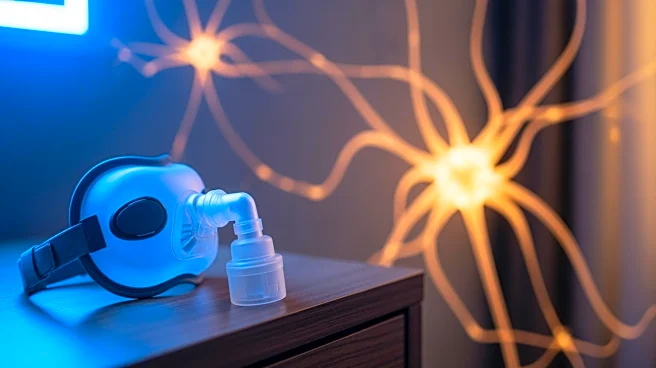What's Happening?
A recent study published in JAMA Neurology has identified a potential link between obstructive sleep apnea and the development of Parkinson’s disease. Researchers analyzed health records of over 11 million U.S. veterans, finding that those with untreated
sleep apnea were nearly twice as likely to develop Parkinson’s disease within six years. The study highlights the importance of treating sleep apnea with positive airway pressure therapy, which was shown to significantly reduce the incidence of Parkinson’s among those who adhered to the treatment. This research adds to the growing body of evidence suggesting that sleep disorders may have broader neurological implications.
Why It's Important?
The findings of this study could have significant implications for public health, particularly in the management and treatment of sleep disorders. With millions of Americans affected by sleep apnea, understanding its potential link to neurodegenerative diseases like Parkinson’s could lead to changes in screening and treatment protocols. This research may prompt healthcare providers to prioritize sleep apnea treatment as a preventive measure against Parkinson’s, potentially reducing the disease's prevalence and associated healthcare costs. Additionally, it underscores the need for further research into the mechanisms linking sleep disorders and neurological health.
What's Next?
Further research is needed to explore the causal relationship between sleep apnea and Parkinson’s disease. Clinical trials could be conducted to validate these findings and assess the effectiveness of CPAP therapy in reducing Parkinson’s risk. Healthcare providers might increase efforts to diagnose and treat sleep apnea, potentially integrating sleep disorder management into routine neurological assessments. This study may also inspire investigations into other sleep-related conditions and their impact on neurodegenerative diseases.
















